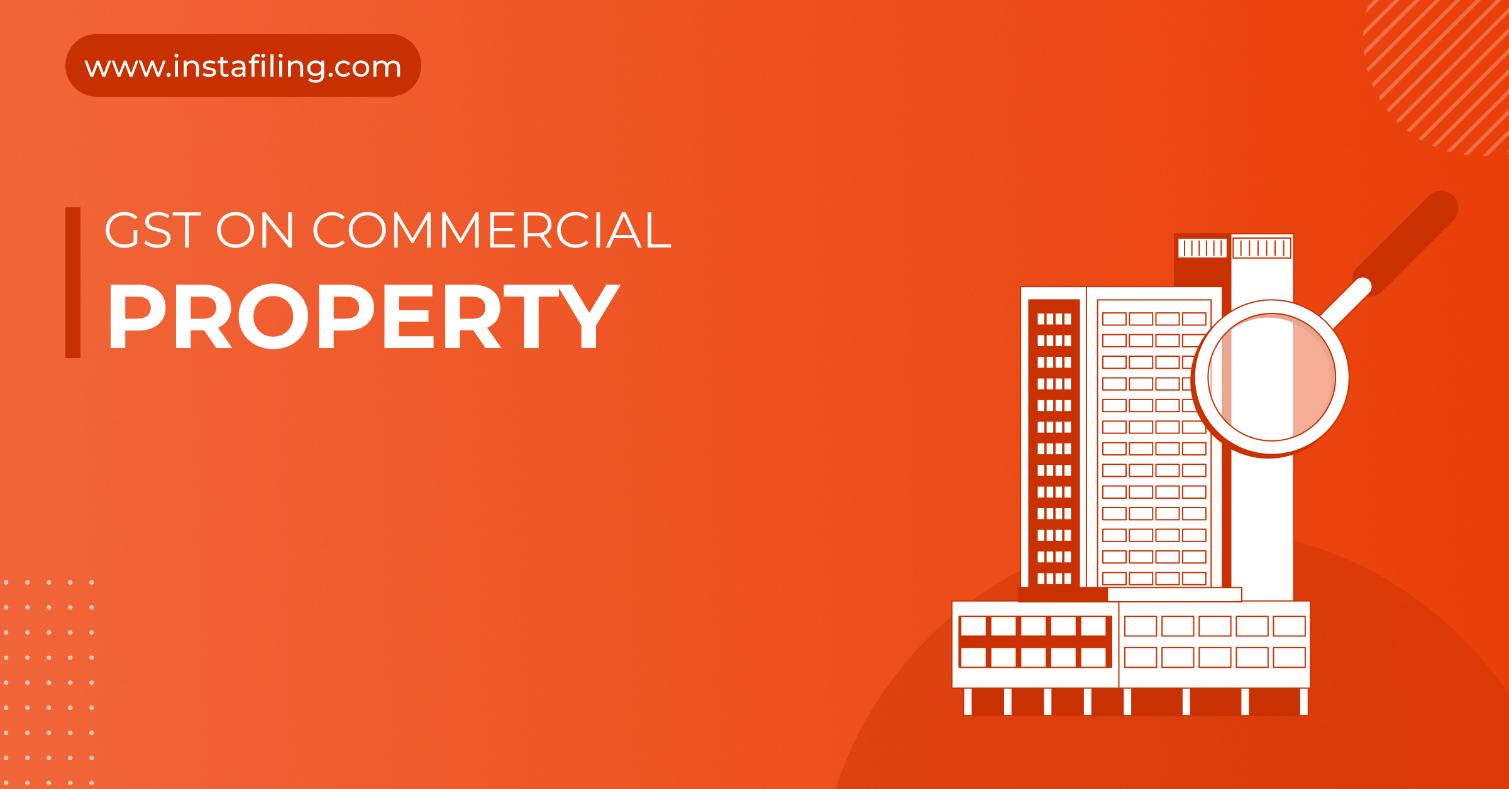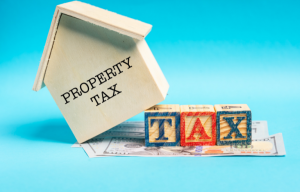The Goods and Services Tax (GST) revolutionized the Indian tax system when it was introduced in July 2017, aiming to unify various indirect taxes into one structured framework. While its implementation brought clarity to multiple industries, it also raised a host of questions, especially for those involved in real estate transactions—more specifically, the commercial property sector.
Commercial property transactions—whether it’s renting out an office space, purchasing a retail shop, or constructing a new commercial complex—are now under the ambit of GST. However, the specifics of GST on commercial properties can get quite complex due to different slabs, exclusions, and variations across states like Maharashtra.
This in-depth guide will walk you through every aspect of GST on commercial property—from renting and buying to construction, sale, and maintenance. We’ll also break down how GST is applied differently based on property types, seller/buyer status, usage, and location. If you’re a buyer, investor, developer, or tenant, this guide is your go-to resource for understanding GST in real estate.
Also Read:- Municipal Tax on Commercial Property: Pay Online | Rules
What Is the GST Applicability on Commercial Property?
The applicability of GST on commercial property depends on whether the property is being rented, sold, constructed, or purchased. It also hinges on whether the property is under construction or completed with an Occupancy Certificate (OC).
- GST is levied at 18% on the rent of commercial properties.
- For properties under construction, the GST rate is usually 12% with ITC (Input Tax Credit).
- Sale of ready-to-move-in commercial properties (with OC) is not subject to GST, as per the current regulations.
Understanding this basic classification is essential before diving deeper into more specific cases.
Is GST Applicable on Rent of Commercial Property?

Yes, GST on rent of commercial property is applicable at 18%, provided the property owner is registered under GST and the annual rental income exceeds the exemption threshold.
This tax is applicable whether the tenant is an individual, a business, or another organization using the space for commercial purposes. The landlord must charge 18% GST on the monthly rent and deposit it with the government.
Also Read:- Real Estate Tokenization: Benefits, Risks, and How It Works
What Is the GST on Commercial Property Rent from an Unregistered Person?
This is an important but often misunderstood point.
If you are renting a commercial property from an unregistered person, and you (the tenant) are a GST-registered business, then you may be liable to pay GST under the Reverse Charge Mechanism (RCM). In such a case, you must self-deposit 18% GST and claim input credit later if eligible.
This clause aims to prevent revenue loss where landlords evade tax due to non-registration.
How Is GST Calculated on Commercial Property?

How to calculate GST on commercial property depends on the nature of the transaction. Here’s a quick breakdown:
- For rent: GST = Monthly Rent × 18%
- For under-construction purchase: GST = (Base Value of Property – Land Value Deduction) × 12%
- For construction contracts: Depends on whether the contract includes land or is purely service-based.
- For maintenance charges: 18% is levied if charges exceed ₹7,500/month per member in commercial buildings.
Ensure proper bifurcation between land and construction cost, as GST is not levied on the land component.
Also Read:- Homebuyers Can Now Enjoy Tax Benefits on Two Owned Properties
What Is the GST on Commercial Property Purchase?

GST on commercial property purchase is applicable only if the property is under construction and sold before receiving the Occupancy Certificate. The applicable rate is 12% with Input Tax Credit.
If the property is already constructed and has obtained the OC, then no GST is applicable on the sale, but stamp duty and registration charges are still mandatory.
Is There Any GST on Commercial Property Purchase in Maharashtra?
Yes, GST on commercial property purchase in Maharashtra follows the same central guidelines. If you are buying an under-construction shop or office in Mumbai, Pune, or other cities, you will have to pay 12% GST on the value of the property minus land cost, as long as OC hasn’t been received.
Additionally, you will also pay 6% stamp duty and 1% registration charges, but these are state-level and not part of GST.
Does GST Apply to the Sale of Commercial Property?
The sale of commercial property is only taxed under GST if the property is sold before completion or without an OC. Once an Occupancy Certificate is granted, the property is considered immovable and exempt from GST.
So, GST on commercial property sale only applies to under-construction sales. Ready-to-move-in commercial properties are exempt.
Is GST Applicable on Commercial Property Maintenance?

Yes, GST on commercial property maintenance is applicable at 18%, particularly when maintenance charges exceed ₹7,500 per month per member, and the society’s annual turnover exceeds ₹20 lakhs.
For office complexes and commercial buildings, maintenance bills are often subject to GST regardless of the amount, depending on the service provider’s registration status.
Also Read:- How to Change the Name in Property Tax Record? | Housiey
What About GST on Commercial Property Construction?

When a builder undertakes commercial property construction, 12% GST is levied on the total construction cost (excluding land value). Builders can claim Input Tax Credit on raw materials and services used in the project.
For works contracts given to contractors for commercial projects, 18% GST is typically charged.
Is There GST on Commercial Property Under Construction?
Yes. GST on commercial property under construction is applicable at 12% with Input Tax Credit if sold before completion. The 12% is calculated on the construction value and not the entire sale amount if the land value is separately mentioned.
Is There a Threshold Limit for GST on Commercial Property?

Yes, the GST on commercial property limit is tied to the aggregate turnover of the property owner or service provider:
- If annual turnover exceeds ₹20 lakhs (₹10 lakhs for special category states), registration under GST is mandatory.
- Below this threshold, GST is not required, unless opted voluntarily.
What Happens If a Property Is Partially Used for Commercial Purposes?
If a property is partly commercial (e.g., ground floor shops with residential units above), GST applicability depends on the exact usage, floor plan, and agreements made during sale or rent. In most cases, commercial portions are taxed while residential ones may be exempt or taxed at a lower rate.
Also Read:- What is Long-Term Capital Gain Tax on Property: Types, Tax Rates, Savings
Can Input Tax Credit Be Claimed on Commercial Properties?
Yes, Input Tax Credit (ITC) can be claimed on GST paid for construction materials, services, and even rent, provided the property is used for business and the buyer is GST-registered.
Does GST Differ by State Like Maharashtra?
While GST is a uniform central tax, state-specific stamp duties and surcharges still apply. For instance, GST on commercial property in Maharashtra is governed centrally, but stamp duty and local cess vary. Maharashtra has one of the highest stamp duty rates in India, which is over and above GST.
Conclusion
Understanding the nuances of GST on commercial property is crucial whether you’re buying, selling, renting, or constructing. While the GST regime simplifies the taxation process, the layered nature of real estate transactions, especially in commercial segments, makes it imperative to be aware of all applicable rates, mechanisms (like Reverse Charge), and the role of OC and registration.
Whether you’re a business owner looking to rent office space, an investor buying a shop in an upcoming complex, or a builder constructing commercial plazas—the way GST impacts your financial planning can’t be ignored.
At Housiey, we make your commercial property journey smooth, transparent, and entirely digital. And if you’re curious about how technology can revolutionize the home-buying process, don’t miss our in-depth blog on “PropTech Benefits for Home Buying.”
FAQs
The Goods and Services Tax (GST) revolutionized the Indian tax system when it was introduced in July 2017, aiming to unify various indirect taxes into one structured framework. While its implementation brought clarity to multiple industries, it also raised a host of questions, especially for those involved in real estate transactions—more specifically, the commercial property sector.
Commercial property transactions—whether it’s renting out an office space, purchasing a retail shop, or constructing a new commercial complex—are now under the ambit of GST. However, the specifics of GST on commercial properties can get quite complex due to different slabs, exclusions, and variations across states like Maharashtra.
This in-depth guide will walk you through every aspect of GST on commercial property—from renting and buying to construction, sale, and maintenance. We’ll also break down how GST is applied differently based on property types, seller/buyer status, usage, and location. If you’re a buyer, investor, developer, or tenant, this guide is your go-to resource for understanding GST in real estate.
Also Read:- Municipal Tax on Commercial Property: Pay Online | Rules
What Is the GST Applicability on Commercial Property?
The applicability of GST on commercial property depends on whether the property is being rented, sold, constructed, or purchased. It also hinges on whether the property is under construction or completed with an Occupancy Certificate (OC).
- GST is levied at 18% on the rent of commercial properties.
- For properties under construction, the GST rate is usually 12% with ITC (Input Tax Credit).
- Sale of ready-to-move-in commercial properties (with OC) is not subject to GST, as per the current regulations.
Understanding this basic classification is essential before diving deeper into more specific cases.
Is GST Applicable on Rent of Commercial Property?

Yes, GST on rent of commercial property is applicable at 18%, provided the property owner is registered under GST and the annual rental income exceeds the exemption threshold.
This tax is applicable whether the tenant is an individual, a business, or another organization using the space for commercial purposes. The landlord must charge 18% GST on the monthly rent and deposit it with the government.
Also Read:- Real Estate Tokenization: Benefits, Risks, and How It Works
What Is the GST on Commercial Property Rent from an Unregistered Person?
This is an important but often misunderstood point.
If you are renting a commercial property from an unregistered person, and you (the tenant) are a GST-registered business, then you may be liable to pay GST under the Reverse Charge Mechanism (RCM). In such a case, you must self-deposit 18% GST and claim input credit later if eligible.
This clause aims to prevent revenue loss where landlords evade tax due to non-registration.
How Is GST Calculated on Commercial Property?

How to calculate GST on commercial property depends on the nature of the transaction. Here’s a quick breakdown:
- For rent: GST = Monthly Rent × 18%
- For under-construction purchase: GST = (Base Value of Property – Land Value Deduction) × 12%
- For construction contracts: Depends on whether the contract includes land or is purely service-based.
- For maintenance charges: 18% is levied if charges exceed ₹7,500/month per member in commercial buildings.
Ensure proper bifurcation between land and construction cost, as GST is not levied on the land component.
Also Read:- Homebuyers Can Now Enjoy Tax Benefits on Two Owned Properties
What Is the GST on Commercial Property Purchase?

GST on commercial property purchase is applicable only if the property is under construction and sold before receiving the Occupancy Certificate. The applicable rate is 12% with Input Tax Credit.
If the property is already constructed and has obtained the OC, then no GST is applicable on the sale, but stamp duty and registration charges are still mandatory.
Is There Any GST on Commercial Property Purchase in Maharashtra?
Yes, GST on commercial property purchase in Maharashtra follows the same central guidelines. If you are buying an under-construction shop or office in Mumbai, Pune, or other cities, you will have to pay 12% GST on the value of the property minus land cost, as long as OC hasn’t been received.
Additionally, you will also pay 6% stamp duty and 1% registration charges, but these are state-level and not part of GST.
Does GST Apply to the Sale of Commercial Property?
The sale of commercial property is only taxed under GST if the property is sold before completion or without an OC. Once an Occupancy Certificate is granted, the property is considered immovable and exempt from GST.
So, GST on commercial property sale only applies to under-construction sales. Ready-to-move-in commercial properties are exempt.
Is GST Applicable on Commercial Property Maintenance?

Yes, GST on commercial property maintenance is applicable at 18%, particularly when maintenance charges exceed ₹7,500 per month per member, and the society’s annual turnover exceeds ₹20 lakhs.
For office complexes and commercial buildings, maintenance bills are often subject to GST regardless of the amount, depending on the service provider’s registration status.
Also Read:- How to Change the Name in Property Tax Record? | Housiey
What About GST on Commercial Property Construction?

When a builder undertakes commercial property construction, 12% GST is levied on the total construction cost (excluding land value). Builders can claim Input Tax Credit on raw materials and services used in the project.
For works contracts given to contractors for commercial projects, 18% GST is typically charged.
Is There GST on Commercial Property Under Construction?
Yes. GST on commercial property under construction is applicable at 12% with Input Tax Credit if sold before completion. The 12% is calculated on the construction value and not the entire sale amount if the land value is separately mentioned.
Is There a Threshold Limit for GST on Commercial Property?

Yes, the GST on commercial property limit is tied to the aggregate turnover of the property owner or service provider:
- If annual turnover exceeds ₹20 lakhs (₹10 lakhs for special category states), registration under GST is mandatory.
- Below this threshold, GST is not required, unless opted voluntarily.
What Happens If a Property Is Partially Used for Commercial Purposes?
If a property is partly commercial (e.g., ground floor shops with residential units above), GST applicability depends on the exact usage, floor plan, and agreements made during sale or rent. In most cases, commercial portions are taxed while residential ones may be exempt or taxed at a lower rate.
Also Read:- What is Long-Term Capital Gain Tax on Property: Types, Tax Rates, Savings
Can Input Tax Credit Be Claimed on Commercial Properties?
Yes, Input Tax Credit (ITC) can be claimed on GST paid for construction materials, services, and even rent, provided the property is used for business and the buyer is GST-registered.
Does GST Differ by State Like Maharashtra?
While GST is a uniform central tax, state-specific stamp duties and surcharges still apply. For instance, GST on commercial property in Maharashtra is governed centrally, but stamp duty and local cess vary. Maharashtra has one of the highest stamp duty rates in India, which is over and above GST.
Conclusion
Understanding the nuances of GST on commercial property is crucial whether you’re buying, selling, renting, or constructing. While the GST regime simplifies the taxation process, the layered nature of real estate transactions, especially in commercial segments, makes it imperative to be aware of all applicable rates, mechanisms (like Reverse Charge), and the role of OC and registration.
Whether you’re a business owner looking to rent office space, an investor buying a shop in an upcoming complex, or a builder constructing commercial plazas—the way GST impacts your financial planning can’t be ignored.
At Housiey, we make your commercial property journey smooth, transparent, and entirely digital. And if you’re curious about how technology can revolutionize the home-buying process, don’t miss our in-depth blog on “PropTech Benefits for Home Buying.”
FAQs












